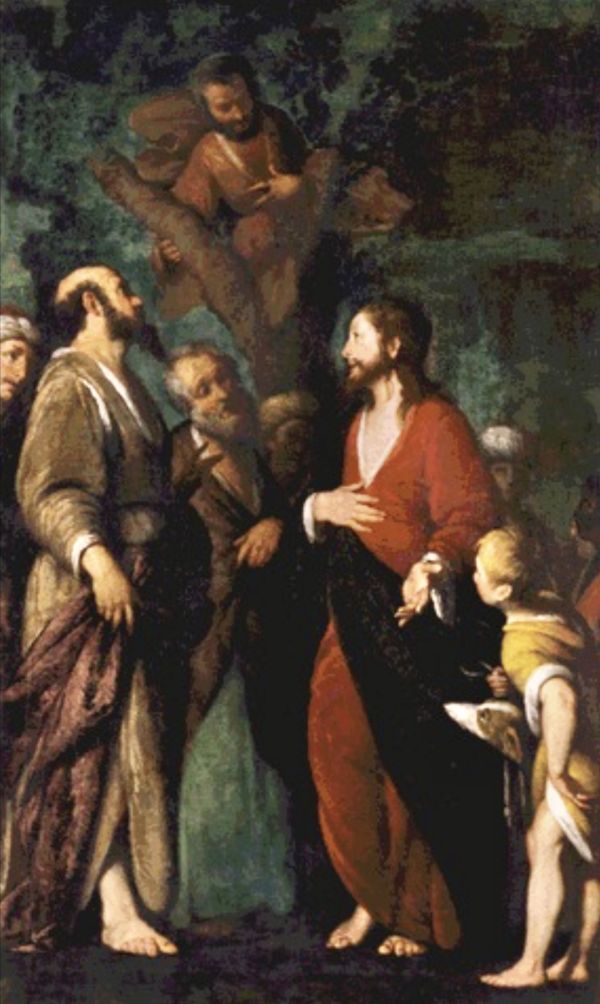Zacchaeus: Surprising about yourself, and set your accounts straight
(Lk 19:1-10)
Zacchaeus wants «to see Jesus, who He is» (v.3): that is, the tax collector ardently desires to understand if God is sensitive to his anxieties.
Although he lives in a devout environment, the crowd around him does not allow him to have any direct personal relationship.
Sycamore is a very leafy tree - he thinks: «I try to see without being seen».
He understands that he needs an immediate eye: he must absolutely discard the moralizing gaze of conformists.
Disturbance induced by judgments without appeal is an impassable barrier to a loving relationship with our Lord.
A new perception is then essential: in fact, despite the crowd around him, Jesus sees just the small, despised and mortified.
If the severe world noticed him, it would read a stain; the view of Jesus is different. He is attracted to the very one who is even ashamed of himself and discomfort of being scrutinized.
Not only: the Lord calls him by name, and in Aramaic Zachar means Just, Pure!
While everyone sees the opprobrium, God grasps in each one an innate purity and the possibilities of good. Even of those who hide.
When the Lord is with those who have erred in life, he is always below, because he is a servant, not a judge or a master.
In the same way he also looks at Zacchaeus: from bottom to top, not vice versa (Lk 19:5).
The "little ones of stature" can also be tall: in the Gospel mikròi (v.3) are the incipients who are immediately put in line or in a hole.
But Who is God? He who rests with the little one - disfigured more by prejudice than by his malpractice.
Once we have had the experience of gratuitousness that crumbles the judgements of “village” morality, a moment is enough for God to change us, and multiply the good, the sense of human bond, and of justice.
In fact, the Father is in a hurry to meet us, just like a lost lover. He knows that we need to find joy - today (vv.5.9).
So He does not put in the way the time of practices, or fulfillments that first demonstrate the conversion: such a Father would not be amiable.
Every traditional discipline looks at the past and wants to raise man in the abstract, mindful of punctilious concatenations.
Jesus aims the present and the next path, not the distant fact.
He unconditionally accentuates the «sense of belonging to a single human family» [cf. Brothers All n.30].
The Most High points down: He desires to share his life-giving presence with the anomalous and isolated.
He needs it immediately, even if some stagnate around offended (Lk 19:7).
All in all, the tax collector was the worst enemy of a world submerged by provincialism, to which he gladly extorted money.
Precisely that of the excluded one, of the worst impure and even religiously scoundrel that there can be, becomes the only recoverable heart.
In short, no man should consider himself a desperate case, alien to the bliss of a new Heaven on earth.
Where welcomed, we too will surprise of ourselves. And we’ll put the accounts in place.
[Tuesday 33rd wk. in O.T. November 19, 2024]












